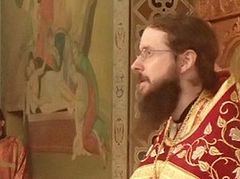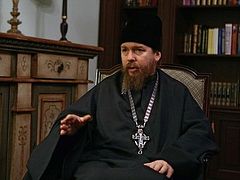Source: Theology That Sticks
March 21, 2016
Ever feel like changing circumstances would make life easier? You’re not alone. Basil the Great wanted a quiet place where he could abandon the commotion of life and focus on his relationship with God. So he moved from the city to the country, hoping to lower the volume.
It didn’t work. Quieter circumstances failed to quiet his mind. “[W]e have derived no great benefit from our present solitude,” Basil wrote to a friend, explaining how the move had let him down.
It’s a common story and we all have our own version. When situations disappoint and experiences fall short of expectations, we think changing our circumstances will fix our problems, like we can just discard and get a better hand. But it doesn’t always—or even usually—work that way.
Basil in the city can’t focus on God. Change the circumstances, and Basil in the country still can’t focus on God. Why? The person matters more than the place. Remember that line from Buckaroo Banzai? “No matter where you go, there you are.”
Basil and Buckaroo are on the same page. “I am like those who go to sea,” continued Basil,
and because they had no experience in sailing are very distressed and sea-sick, and complain of the size of the boat as causing the violent tossing; and then when they leave the ship and take to the dinghy or the cock-boat, they continue to be sea-sick and distressed wherever they are; for their nausea and bile go with them when they change.
The nausea is the problem, not the boat. The view might be different, maybe even better, but the change won’t help the real issue, which is us. Said Basil, “[W]e carry our indwelling disorders about with us, and so are nowhere free from the same sort of disturbances.”
If a change in circumstances isn’t the solution—and it often isn’t—then we need to turn inward and work on ourselves.
Basil says that looks like unlearning the things that muddy our minds and hearts and practicing the faith through prayer and meditation on the scriptures; this is what will eventually reorder those indwelling disorders we drag around.
When faced with joylessness and frustration, we should be quicker to fault ourselves than our circumstances. The apostle Paul talks about being content in all situations, whether in riches or poverty. That’s the mark of someone who is comfortable sailing in whatever boat God assigns.





Character is-a what you are in-a the dark!
We must work while the clock she is ticking.